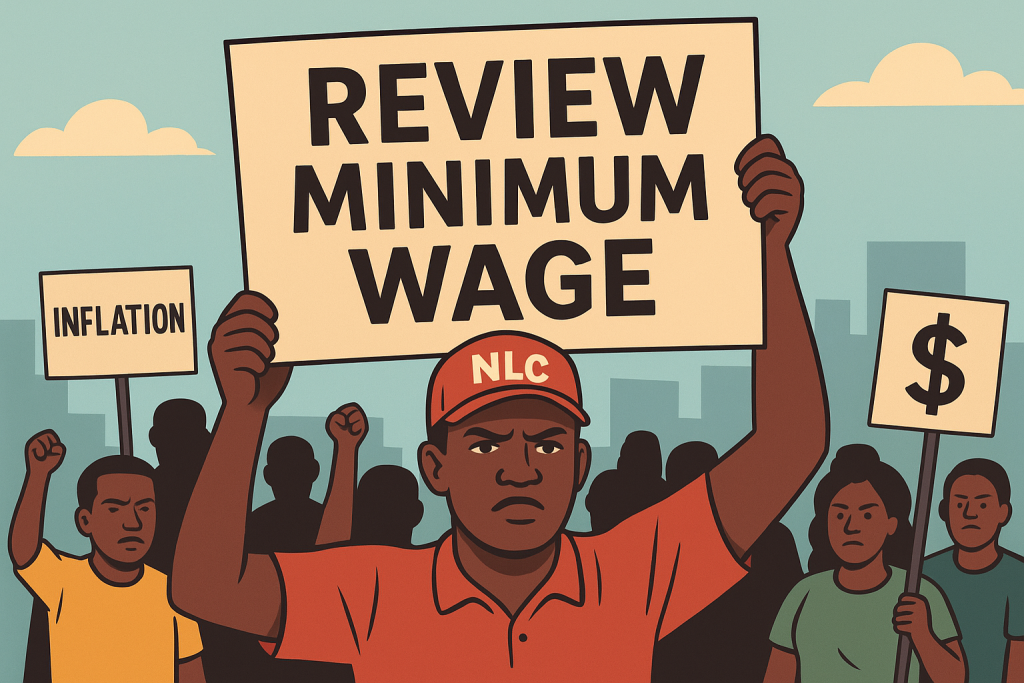Abuja — The Nigeria Labour Congress (NLC) has renewed its call for a review of the ₦70,000 national minimum wage, stressing that the amount no longer meets the needs of Nigerian workers in the face of rising inflation and inconsistent implementation across states.
Workers Still Struggling Despite Wage Increase
NLC President, Joe Ajaero, said that while the ₦70,000 wage was a step forward, it has quickly lost value due to the high cost of food, transport, and housing. He explained that in some states, workers saw as little as ₦5,000 added to their monthly salaries after tax deductions and poor wage adjustments.
“In some states, you just notice ₦5,000 on top of your salary. What is the essence of consequential adjustment?” Ajaero asked, adding that the wage as it stands is no longer sustainable.
States Falling Behind in Implementation
Labour unions have expressed concern that some state governments are yet to fully implement the new minimum wage. In Zamfara State, for instance, both the NLC and Trade Union Congress (TUC) issued a 14-day ultimatum after some workers received as little as ₦3,000 in wage increases, while others were removed from payroll.
By contrast, states such as Lagos and Akwa Ibom have fared better with compliance, though unions are still pressing for clarity on allowances and proper adjustments across all levels.
Fresh Push for Compliance
During this year’s Workers’ Day celebration, Ajaero announced that the NLC would launch a new campaign to compel states and private employers to comply with the ₦70,000 minimum wage. He also hinted that the union would push for another wage review to reflect Nigeria’s current economic realities.
According to him, ensuring that workers earn a fair and living wage is central to promoting productivity and protecting social stability.
Rising Cost of Living
The call for wage review comes at a time when many Nigerian families are finding it difficult to afford basic necessities. Despite the wage increase, the sharp rise in food prices, rent, and school fees has continued to erode household income.
The situation has sparked wider economic concerns, with labour unions warning that continued neglect could force workers back into poverty despite being employed.
What Lies Ahead
The NLC’s renewed campaign signals the beginning of another round of negotiations between labour unions and the government. Analysts believe that unless a fair compromise is reached, the country may witness renewed labour unrest similar to the nationwide strike of 2024, when workers shut down major sectors in protest of poor wages.
For now, Nigerian workers continue to wait, hoping that the promise of a “living wage” becomes more than a political slogan.



